Future Students
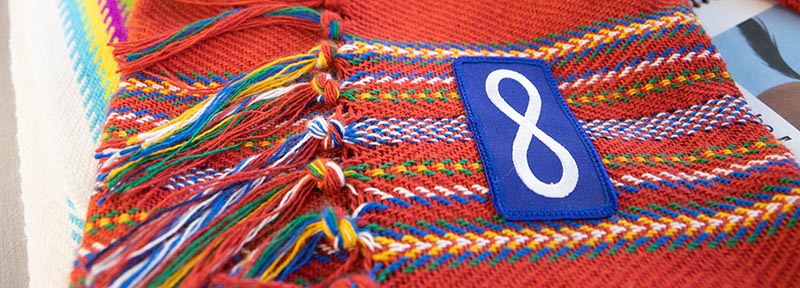
Métis Youth Career Days at TRU
Experience hands-on cultural activities while learning from Indigenous community leaders and elders. Take exclusive campus tours, mingle with faculty, and current students and get your questions answered. March 12-14 on campus.
RegisterVisit us at Cplul’kw’ten
Cplul’kw’ten is a friendly and inviting Indigenous centre that provides information on all aspects of university life and doubles as space to socialize, study or just take a break from your day. It is truly a home away from home.
- Learning Circles
- Soup Day
- Academic support
- Health and wellness support
- Counselling
- Learn More
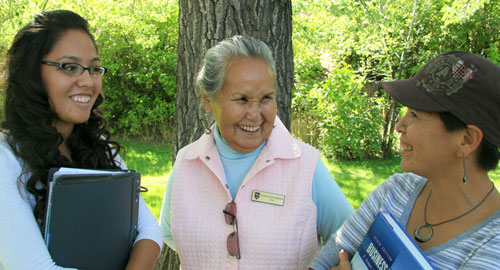
Elder in the House
Elders provide personal consultation, conversation, guidance and mentorship to Indigenous students.
» Learn More
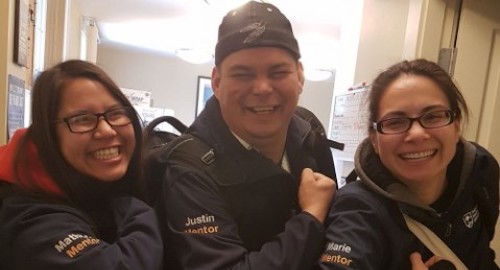
Mentoring
The Indigenous Mentor Program assists new students with a successful transition into TRU.
» Learn More
Tristen's Story
I took a campus tour and was brought to Cplul’kw'ten, and the supportive atmosphere there made me feel a little less nervous about moving so far away from my hometown. So far, I’ve really appreciated the volunteer opportunities that I’ve had, such as participating in the TRU Powwow. Also, the ability to speak freely about language, reconciliation and culture with others at Cplul’kw'ten has been really important.
Tristen Wybou,
Ts'mshian from Kxeen (Prince Rupert),
Bachelor of Arts, Psychology
Meet some of our students
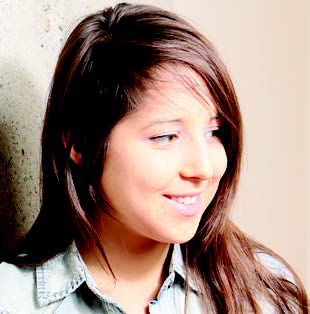 Kelsey Jules
Kelsey JulesBachelor of Fine Arts student Kelsey Jules is living an artist’s dream — her work will be on display alongside renowned BC First Nations artists like Bill Reid. Encouraged by faculty and sta at TRU, Kelsey applied for and won a Youth Artist Scholarship from the YVR Art Foundation. The scholarship supports her studies, including one-on-one mentorship from her visual arts instructor Eileen Leier, and her artwork on the cultural history of residential schools will be part of a year — long exhibit at the Vancouver International Airport. Kelsey is excited to share the stylistic traditions of the Interior-Salish Secwépemc (Shuswap) with thousands of viewers.
— Kelsey Jules, Tk’emlúps te Secwépemc
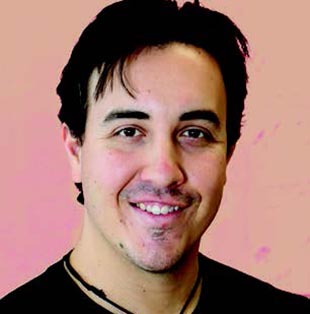 Jason Waub-Addick Johnston
Jason Waub-Addick JohnstonBachelor of Interdisciplinary Studies student Jason Waub-Addick Johnston is Ojibway-Chippewas of Nawash Unceded First Nation. Focusing on Aboriginal anthropology, adventure tourism, and tourism management, he has drafted a business plan to start his own tourism business on his home reserve. As an Aboriginal Mentor, he assisted new Aboriginal students to transition into university life, tutored, and volunteered with other mentors to host cultural events, sharing Aboriginal cultures and teachings. He has received several awards available to Aboriginal students. Jason participated in the first Knowledge Makers workshop to cultivate his research skills, and is interested in pursuing a master’s degree.
— Jason Waub-Addick Johnston, Neyaashiinigmiing
 Noah Nochasak
Noah Nochasak
A graduate of TRU’s Adventure Guide Diploma, Noah Nochasak came to Kamloops from Nain, Labrador to strengthen his paddling and broaden outdoor skills. Now completing a Bachelor of Interdisciplinary Studies, Noah’s learning has been both hands-on and research-intensive: a three-week required kayaking expedition, a BIS thesis paper on adventure sports injury, a community development plan for adventure tourism in Nunatsiavut. Afer graduation — and more arctic expeditions—Noah will bring what he’s learned home.
— Noah Nochasak, Inuk from Nunatsiavut region
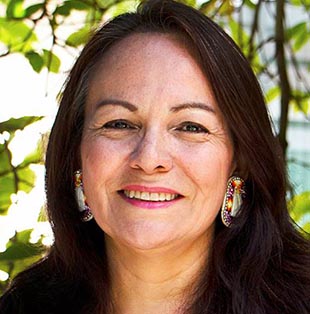 Suzette Prince
Suzette PrinceI have been honoured to have my daughter Dorothy at TRU also completing studies alongside me. As an intergenerational residential school survivor, I believe we are breaking the cycle of trauma and will be able to support others in living happy, healthy, fulfilling lives. I utilize my knowledge from my BA teachings every day and am truly thankful for my job at the Metis Commission for Children and Families of BC.
— Suzette Prince, TRU graduate, Bachelor of Arts (sociology major) and Aboriginal Studies certificate. She is a cultural safety worker for the Metis Commission for Children and Families of BC. She chose TRU because it was close to her home and she could work part-time while taking classes. She is of Carrier descent, Nak’azdli Whut’en, Fort St. James and Lysilou (frog) clan.
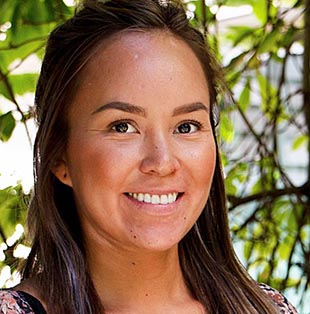 Dorothy Prince
Dorothy PrinceThe Gathering Place was a great place to go. I was able to get some guidance when I was a new student. They have bursaries students can apply for and a lot of great resources there. It’s a home away from home. University can be an intimidating place, but don’t let that discourage you. You become comfortable with the university with time. I’m happy I stuck through all the challenges I faced because I wouldn’t be here now.
— Dorothy Prince, TRU graduate, Human Service diploma program, currently in the Bachelor of Social Work program. She is of Sekani/Carrier descent, McLeod Lake Indian Band, Lysilou (frog) clan.
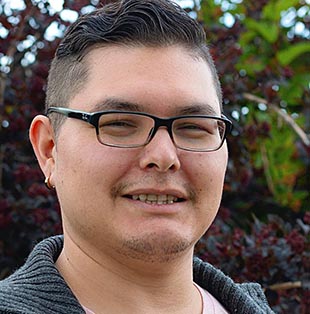 Melvin James
Melvin James
The Gathering Place was an essential thing for me when I first attended TRU. Without The Gathering Place, I might not have succeeded in fitting into a different environment. I spent most of my first semesters in The Gathering Place and got help from many people, including some that are still my friends today. I have recommended TRU to my nephews and other First Nations from the Mount Currie area. I would tell them about The Gathering Place and the many great people you meet in Kamloops.
— Melvin James, TRU student, Computer Science program. Melvin chose TRU because he could study computer science and be closer to family at a university that was also affordable. He is from Mount Currie/Lil’wat Nation.
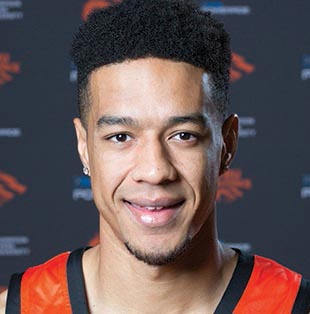 Kyrin Cybenko
Kyrin CybenkoI have attended TRU for two years and I’m currently a fifth-year student athlete playing for the TRU WolfPack men’s basketball team. I am pursuing a Bachelor of Arts with a major in psychology. Being an individual who identifies as Indigenous has allowed me to connect with a variety of resources on campus. I have also met tons of great, friendly people during my time at TRU. As an Indigenous student athlete, I’ve been able to share my unique experiences with others and promote athletics events for my teams. I am honoured to be a student athlete and an Indigenous individual representing TRU.
— Kyrin Cybenko
photo by Andrew Snucins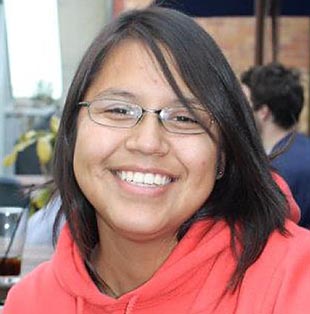 Mathilda Chillihitzia
Mathilda ChillihitziaBeing a student at TRU is an experience I will never forget. At first it was hard, I did not know where to go, or about the supports available. I would go to class and then go straight back home. Academically, I was doing OK, then eventually I found House 5 (Cplul’kw’ten). That is where I found the support I needed to get through university and with family support from home I started to show improvement. By the end of my studies, I flourished. I studied abroad in Australia for a semester, came back and became a TRU world ambassador and an Indigenous mentor.
— Mathilda Chillihitzia
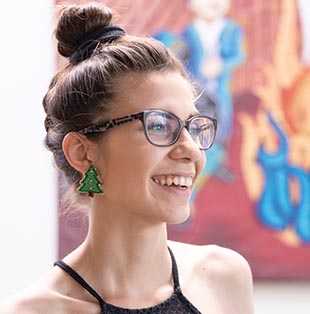 Lesley Campbell
Lesley Campbell
I’m a geography student studying to become an elementary school teacher. I am Nlaka’pamux— originally from Boston Bar. Some of my interests include powwow dancing, travelling, photography and playing fetch with my cat. Along with being an Indigenous mentor on campus, I am also a member-at-large in the TRU Students’ Union equity committee, and a member of Kappa Beta Gamma (TRU’s sorority). As a mentor at Cplul’kw’ten, my goal is to do my best to help make university life a bit more fun, and hopefully a lot less stressful. When you see me around, feel free to come ask me anything or simply say hello!
— Lesley Campbell
Start your journey by talking to us
Our Qelmúcw Student Recruiter - Advisors have answers to your questions.
Our services support you along the way
We have an awesome team to support Indigenous students. Plus many excellent resources.
- Cplul’kw’ten: The Gathering Place
- Mentor Program
- Elder in the House Program
- Tuition Support
- University Preparation
Why TRU?
TRU’s tuition fees are among the lowest in BC. Students who self-identify may be eligible for post-secondary education sponsorship from their band or other Indigenous organizations. Sponsorship often includes support with tuition, book costs and living allowance. TRU can help with the sponsorship process.
There are scholarships specifically for Indigenous students, including Ch’nook Scholars, Indigenous student awards and Indspire bursaries and scholarships.
Equity admission means a percentage of seats are reserved for students from diverse backgrounds (such as Indigenous students) if they self-identify and meet admission requirements. This includes spaces in competitive programs like nursing, social work, education and law.
University Preparation is a program for students who did not complete high school or those who need more skills or prerequisites to take post-secondary courses. UPrep is available at TRU’s Kamloops and Williams Lake campuses.
Equity admission is available for Bachelor of Science in Nursing, Bachelor of Social Work, Bachelor of Education and Faculty of Law.
Why should you self-identify as Indigenous?
When you fill out your application form, you will find an optional section on Indigenous self-identification. By checking the Yes box, you make it easier for us to advise you about services and events that might be of interest to you. Be assured your information is confidential.
Seven steps to enrolling at TRU
- Connect with a Qelmúcw Recruiter - Advisor to answer your questions and choose a program.
- Apply. Include your application fee, transcripts and any other relevant documents.
- Get accepted. Register and pay your tuition deposit, or arrange for a sponsorship letter.
- Pay the balance of tuition and fees. Choose whether you want extended health coverage. Send in a selfie for your campus card, get your UPass and check out your card benefits.
- Plan your courses. Academic advising can help.
- Attend orientation and drop in at Cplul’kw’ten or The Gathering Place.
- Let the classes begin.
Thompson Rivers University campuses are on the ancestral lands of the Tk'emlúps te Secwépemc (Kamloops campus) and the T’exelc (Williams Lake campus) within Secwepemcúl̓ecw, the traditional and unceded territory of the Secwépemc. The region TRU serves also extends into the territories of the St’át’imc, Nlaka’pamux, Nuxalk, Tŝilhqot'in, Dakelh, and Syilx peoples.
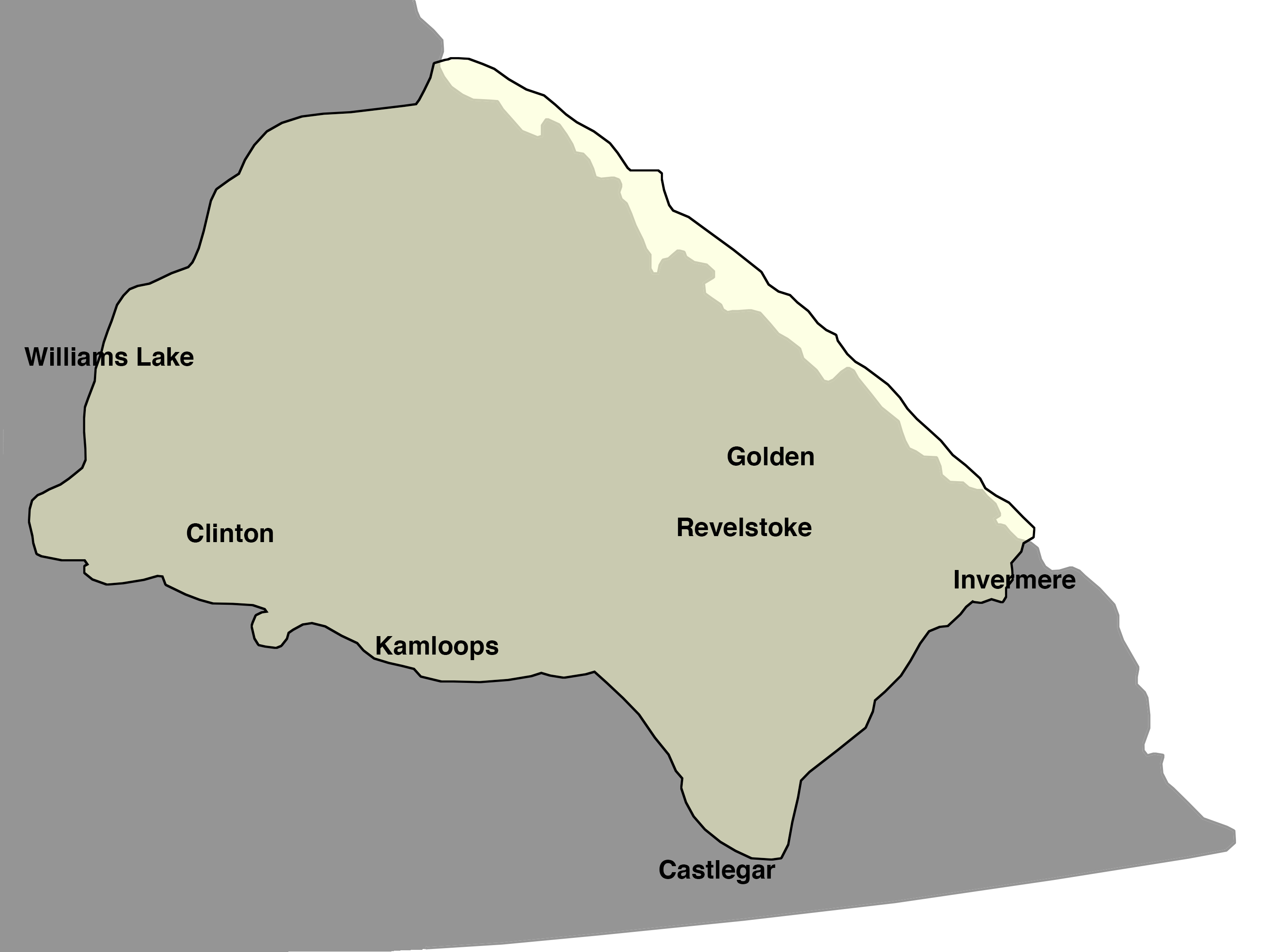
We honour this connection through an array of programs and services to welcome and support Indigenous students.
Walking alongside you is our Services for Indigenous Students team, supporting your transition to university life with mentoring, life skills coaching, counselling and other services.
